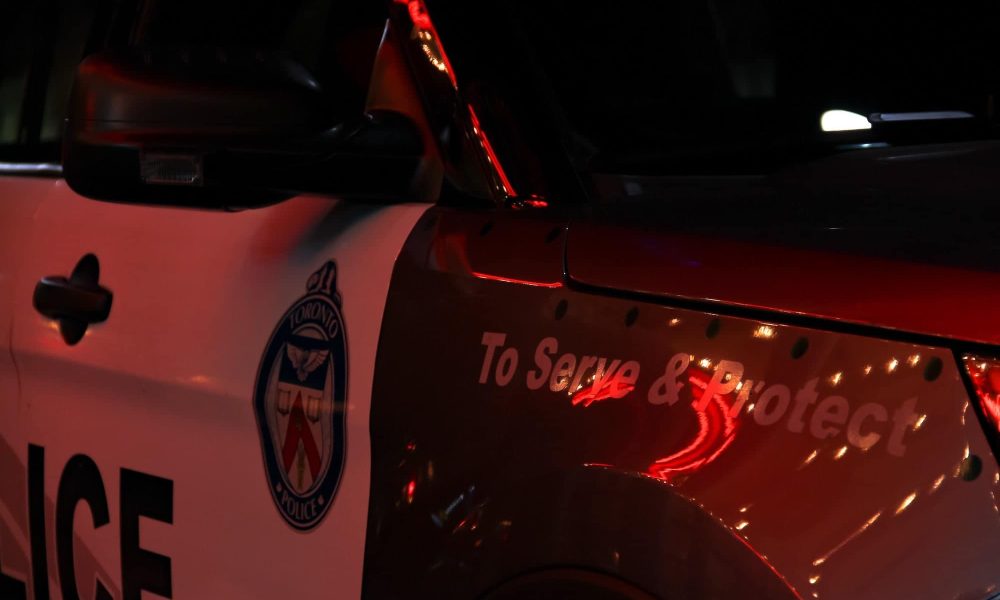
Overview
This page contains detailed information about Canadian Criminal Code charges for Impaired Driving. Included are defences, punishments, what's needed to be found guilty, how we can defend you, and actions you can take. It was written and prepared by experienced criminal defence lawyers in Toronto but does not consist of legal advice.
What are Defences for Impaired Driving?
- Identity of offender not proven;
- Driving or care or control not proven;
- Impairment by alcohol or a drug not proven;
- Impairment by alcohol or a drug at the operable time not proven;
- Consumption of alcohol or drug that caused impairment was unintentional;
- Consumption of alcohol or drug took place after operation has ceased;
- It was not reasonably believed that the alcohol or drug would cause impairment;
- Duress;
- Necessity;
- Automatism;
- Breach of right to be free from unreasonable search and seizure (Charter);
- Breach of right to be free from arbitrary detention (Charter);
- Breach of rights to counsel (Charter);
- Breach of right to a trial within a reasonable time (Charter);
- Excessive use of force by police (Charter);
- Abuse of process (Charter);
Charged with Impaired Driving? Get Every Defence.
Do not plead guilty to impaired driving charges without discussing your case with a lawyer.
Drinking and driving offences have mandatory minimum sentences and a conviction will result in a criminal record, a lengthy driving suspension, skyrocketing car insurance rates and fine or jail. Being found guilty may also result in negative employment, immigration and personal consequences to you and your family for years to come. You have everything to lose and little to gain by pleading guilty to these charges rather than fighting them.
Every Defence. Norm and Marcus will ensure that all of your rights are protected. You are presumed innocent. We will fight for the positive result you need to move on with your life.
To speak with Norm or Marcus, call (416) 855-7799 or email us at [email protected]. We accept calls 24 hours a day, 7 days a week. Confidentiality guaranteed. Free consultations. Meeting by appointment only.

Offence: Impaired driving (or care or control) contrary to section 320.14(1)(a) of the Criminal Code of Canada.
* Note: This offence applies to the operation of any conveyance while impaired by alcohol or a drug. A conveyance is is defined as a motor vehicle, a vessel, an aircraft or railway equipment
To be found guilty of Impaired Driving
The Crown Attorney has to prove ALL of these things BEYOND A REASONABLE DOUBT:
- The accused’s ability to drive was impaired by the consumption of drugs and/or alcohol;
- The accused knew that his/her consumption of alcohol and/or a drug would or might impair his/her ability to drive;
- The accused was driving or was in care or control of a conveyance (i.e. a motor vehicle, vessel, aircraft or railway equipment);
- the accused intended to drive or be in care or control of a conveyance after the voluntary consumption of alcohol and/or a drug.
How the prosecutor will try to prove guilt of Impaired Driving
The Crown Attorney will rely on observations made by witnesses, including police officers, of your driving (if any was observed) and observations of your conduct and behaviour, including while being investigated by the police. They Crown Attorney will also likely rely on video footage from the police station as well as in-car video footage (in jurisdictions where police scout cars are equipped with in-car cameras). If impairment is proven, a person is presumed to know that his/her prior consumption of alcohol or a drug would or might cause impairment ABSENT evidence to the contrary.
If the Crown Attorney proves the accused was occupying the driver’s seat, the accused is presumed to have been in care or control UNLESS he/she establishes (on a balance of probabilities) that he/she did not occupy the driver’s seat for the purpose of setting the vehicle in motion.
Care or control is proven if the Crown Attorney proves that the accused engaged in an intentional course of conduct associated with the vehicle in circumstances where there was a realistic risk of danger to persons or property.
How we can defend you
Drinking and driving cases (DUI/Over 80) are extremely technical to prove and defend. To ensure you have the best chance of success, it is important that you have a lawyer who is experienced and up-to-date on the most recent court cases. We have successfully defended hundreds of drinking and driving cases and is considered to be one of the top up-and-coming drinking and driving lawyers in Ontario.
Every Defence.
Punishment IF found guilty
For a first offence
- IF the Crown elects to proceed by summary conviction, the maximum sentence is two years less a day in prison and a three year driving prohibition
- IF the Crown elects to proceed by indictment, the maximum sentence is ten years in prison and a ten year driving prohibition;
- Your driver’s licence will be automatically be suspended under the Highway Traffic Act.
For a second offence
- the mandatory minimum sentence is thirty days in prison;
- the mandatory minimum driving prohibition/suspension is two years;
- IF the Crown elects to proceed by summary conviction, the maximum sentence is two years less a day in prison;
- IF the Crown elects to proceed by indictment, the maximum sentence is ten years in prison;
the maximum driving prohibition/suspension is ten years;
For a third or subsequent offence
- the mandatory minimum sentence is one hundred and eighty days in prison;
- the mandatory minimum driving prohibition/suspension is thee years;
- IF the Crown elects to proceed by summary conviction, the maximum sentence is two years less a day in prison;
- IF the Crown elects to proceed by indictment, the maximum sentence is ten years in prison;
- the maximum driving prohibition/suspension is a lifetime driving ban;
Additional notes on sentencing
The above punishments do not include insurance consequences or requirements mandated by the Ministry of Transportation to have your driver’s licence reinstated following a conviction (e.g. Back on Track remedial measures program and associated costs).
IF a person is convicted of impaired driving, they may be able to drive during part of the driving prohibition period if they are registered in an alcohol ignition interlock device program established by the province.
IF the Crown Attorney agrees, the Court MAY, after finding a person guilty of impaired driving, delay sentencing to allow the person to attend a treatment program approved by the province. IF the person then successfully completes the treatment program, the Court MAY sentence the person to a fine or prison sentence that is below the mandatory minimum. However, after finding a person guilty of impaired driving, in no circumstances can the Court grant a conditional or absolute discharge.
IF a person is convicted of impaired driving, they may be able to drive during part of the driving prohibition period if they are registered in an alcohol ignition interlock device program established by the province.
IF the Crown Attorney agrees, the Court MAY, after finding a person guilty of impaired driving, delay sentencing to allow the person to attend a treatment program approved by the province. IF the person then successfully completes the treatment program, the Court MAY sentence the person to a fine or prison sentence that is below the mandatory minimum. However, after finding a person guilty of impaired driving, in no circumstances can the Court grant a conditional or absolute discharge.
Recent Successes
R. v. S.L — Impairment not proven beyond a reasonable doubt
Our client was involved in an accident on Highway 401 as a result of sideswiping another car. A police officer arrived a few minutes later and after speaking to the occupants of the other vehicle, he arrested our client for impaired driving. Our client was taken to a police station to give breath samples and blew over the legal limit. She was charged with impaired driving and over 80. At trial, through effective cross-examination, we successfully discredited the arresting officer’s testimony, showing that it was unreliable. We then successfully argued that the arresting officer did not have the requisite reasonable and probable grounds to arrest our client and that the breath test results should be excluded from the trial. We also argued that the prosecution had not proven beyond a reasonable doubt that our client was impaired. The trial judge accepted our arguments, finding that our client’s Charter right to be free from arbitrary detention and from unreasonable search and seizure were breached and that impairment had not been proven. Both of the charges against our client were dismissed.
R. v. D.P. — Impairment not proven beyond a reasonable doubt
Our client drove his pick up truck into a hydro pole located on the sidewalk of a busy street in downtown Toronto. A security guard approached the truck and saw that our client was asleep behind the wheel. Police were called and had to bang on the driver’s side window to wake our client up. After speaking with our client, police charged him with impaired driving and brought him to the police station to provide samples of his breath. At trial, we exposed significant inconsistencies between the evidence of the two officer’s on scene and between the evidence of the two officers and video footage recorded by cameras on the police car and at the police station. We also successfully argued that a number of our client’s Charter rights were breached, including his right to be free from unreasonable search and seizure (the arresting officer did not have reasonable and probable grounds to believe he was impaired) and is rights to counsel (he should have been given an opportunity to call a lawyer before he was taken to the police station). The trial judge excluded the results of the breath tests and found that the prosecution had not proven beyond a reasonable doubt that our client was impaired. Both of the charges against our client were dismissed.
R. v. S.R. — Plea to Careless driving under the Highway Traffic Act
Our client, who was an off-duty police officer, was pulled over by police after someone called 911 to report an
erratic driver on the highway. The arresting officer claimed that he then observed our client driving at a hight rate of speed while weaving back and forth. Our client was pulled over, arrested and taken to a police station where he blew more than twice the legal limit. He was charged with impaired driving and over 80. Prior to trial, we filed a Charter application alleging that the arresting officer did not have reasonable and probable grounds to arrest our client and that his rights to counsel were breached because the police unjustly terminated our client’s phone call with his lawyer before it was complete. At trial, we thoroughly cross-examined the arresting officer and exposed a number of exaggerations and some outright lies. Ultimately, the persecutor determined that due to the arresting officer’s impeached credibility, the trial judge was unlikely to find out client guilty. Our client was offered a deal to plead guilty to careless driving under the Highway Traffic Act (which did not result in a criminal record or a driving suspension) in return for a withdrawal of the criminal charges. Our client was more than happy to take the deal.
R. v G. – Defence of Necessity
The Accused was charged with drinking and driving as well as aggravated assault and property damage. At trial, the Accused testified that she drove the vehicle while intoxicated out of necessity. That is, in order to escape circumstances in which she feared for her safety. The Crown Attorney’s questioning of the Accused at trial about why she did not tell the arresting officers about the necessity conflicted with the Accused’s right to silence. A new trial was ordered.
